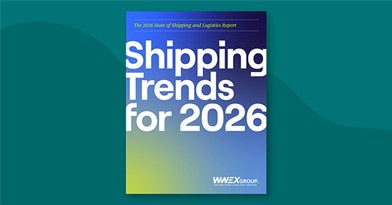The Ins and Outs of Temperature-Controlled Freight Shipping
You expect your freight to make it to its destination looking just as good as it did leaving the warehouse. But when you’re shipping perishable materials — or anything that can be affected by climate — things become a little more complicated.
When do you need temperature-controlled freight shipping?
Since temperature controlled shipping costs more than regular freight, you don’t want to assume it’s the best choice for your cargo. Listed below are a few sensitive goods that may require temperature controlled logistics:
- Fresh food such as fruit, meat, or dairy
- Frozen food such as ice cream
- Flowers or other live plants
- Medicine, blood, and other pharmaceuticals
- Wine
- High-value electronics or artwork
Additionally, these items are susceptible to freezing during the winter months, and may require freeze protection:
- Dyes, inks, and paints
- Glue and pastes
- Cleaning detergents
When you need to add temperature protection to your freight shipments, be sure to consider these important factors:
- Weight and size limitations. Due to the extra insulation and equipment required to transport temperature-controlled items, refrigerated or heated freight trucks may have smaller truck space and payload capabilities. Pay attention to the weight and dimensions of your freight to avoid shipping any oversized items.
- Temperature and timing. It’s important to understand the temperature requirements of your goods — and to relay those details to the carrier. Make sure the carrier knows the acceptable temperature range and transit window for your freight (and be sure to specify if the temperature is in Fahrenheit or Celsius). Many of the same LTL carriers you use for your other freight shipping can also provide freeze protection. Our Unishippers account team can provide details on availability and restrictions.
- Packaging Techniques. Protect your temperature-sensitive items by packaging with insulation materials — there are a variety of foams, foils and blankets that you can use, depending on your needs. If your product needs to stay cold, you may also consider using gel coolants or dry ice. However, remember that dry ice is considered a hazardous material and requires special handling.
Let Unishippers build your business a strong temperature-controlled logistics freight shipping strategy
Shipping freight that is sensitive to temperature changes is complex. Unishippers, a third party logistics provider, can be a valuable resource in getting your temperature-controlled freight on the road safely. We offer rates from top-rated carriers built over the years, a dedicated team of shipping experts, and easy-to-use shipping tools to get your refrigerated freight to its destination. Have questions on the ins and outs of temperature protection?


